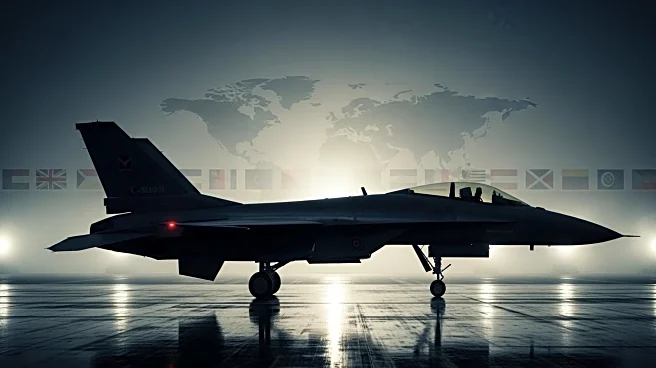What's Happening?
President Trump has reportedly paused $400 million in weapons aid to Taiwan, sparking concerns that this move is part of a strategy to negotiate a trade deal with China. The pause includes orders for lethal munitions and autonomous drones, although it could be reversed. This development comes as the U.S. seeks to resolve a prolonged trade war with China, with Trump and Chinese leader Xi Jinping recently discussing trade, fentanyl, and TikTok. Analysts noted that the call between Trump and Xi did not mention Taiwan, a sensitive issue for Beijing, which aims to annex Taiwan as part of its territory. Taiwan's government and citizens strongly oppose Chinese Communist Party rule, leading to an arms buildup in the region, with Taiwan relying heavily on U.S. support.
Why It's Important?
The pause in weapons aid to Taiwan is significant as it may impact Taiwan's defense capabilities and its ability to resist Chinese pressure. Taiwan has been a major recipient of U.S. military support, and any reduction in aid could alter the balance of power in the region. This move could also signal a shift in U.S. foreign policy priorities, potentially prioritizing trade negotiations with China over military support for Taiwan. The decision may embolden China to exploit the situation, potentially increasing tensions in the Taiwan Strait. Stakeholders in Taiwan and the U.S. defense industry may face uncertainty as they navigate the implications of this pause.
What's Next?
The future of U.S. arms sales to Taiwan remains uncertain, with potential resumption after Trump's visit to China. Taiwan's government has not confirmed the pause, maintaining that the U.S. continues to support its defense capabilities. Analysts suggest that Beijing may use the leaders' engagement to seek further assurances on Taiwan, while U.S. backing for the island is expected to persist. The situation may evolve based on the outcomes of upcoming diplomatic engagements and trade negotiations between the U.S. and China.
Beyond the Headlines
The pause in weapons aid could have deeper implications for U.S.-China relations and Taiwan's geopolitical standing. It raises ethical questions about the use of military aid as a bargaining chip in trade negotiations. The decision may also influence Taiwan's domestic policies, prompting increased defense spending and strategic shifts to ensure its security. Long-term, this development could affect regional stability and the U.S.'s role as a global security provider.









